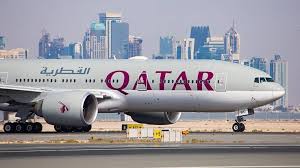Qatar Bans Solo Travel for Nigerian Men Under New Visa Restrictions

By Kamal Yalwa: DOHA, QATAR – September 10, 2025
Qatar has implemented a new visa policy barring Nigerian men from entering the country alone on tourist or transit visas, a move officials say is intended to reduce visa overstays but which has sparked criticism and concern among travellers and observers.
The restrictions, introduced quietly by Qatar’s Ministry of Interior around September 5, apply to both new and pending visa applications. Under the new rules, only women and family units are eligible for tourist or transit visas, effectively excluding men travelling alone unless they are accompanied by family members.
In addition to travel companionship requirements, applicants must now provide proof of return transfers and confirm accommodation in five-star hotels before their visa applications will be processed—further tightening entry conditions.
The decision has raised alarm among Nigerian travellers, particularly male business professionals, students, and those using Doha as a transit hub to Asia and Europe.
“This is going to affect a lot of Nigerians who fly Qatar Airways to Asia or Europe. For men, it is practically a travel ban if they are not going with their family,” a travel industry source told Vanguard.
Qatar has defended the policy as necessary to prevent illegal stays, a concern that has led to similar measures in the past. However, analysts warn that the latest restrictions may strain diplomatic ties and disrupt economic and cultural exchanges between the two nations.
This is not the first time visa rules have led to friction. In 2019, former Senate President Bukola Saraki appealed to Qatari authorities to ease entry restrictions for Nigerians. More recently, in 2023, former Aviation Minister Hadi Sirika publicly urged for more equitable treatment of Nigerian travellers.
Compared to previous entry requirements, the current measures are viewed as particularly severe and targeted, with male travellers disproportionately affected. Many are now faced with the prospect of cancelling trips or reconfiguring travel plans under more costly and complex arrangements.
As of now, no official response has been issued by the Nigerian Ministry of Foreign Affairs, but calls for diplomatic engagement are expected to grow in the coming days.



